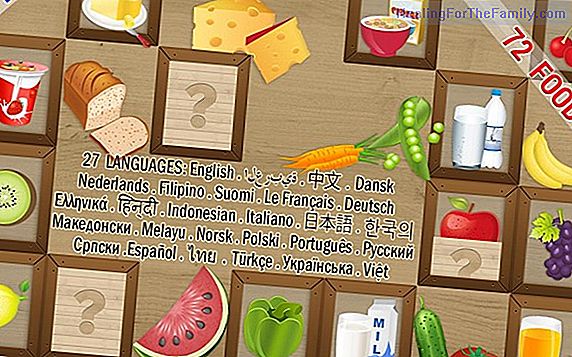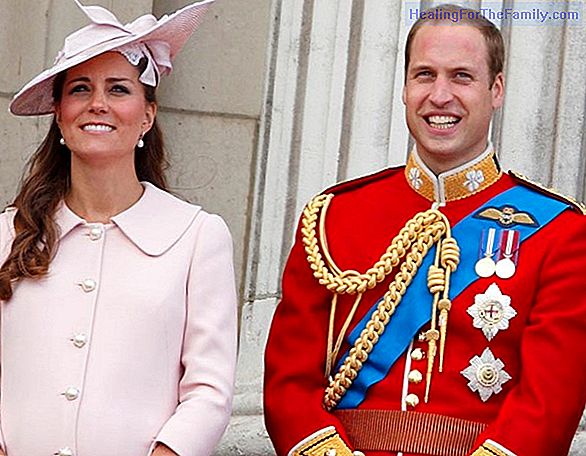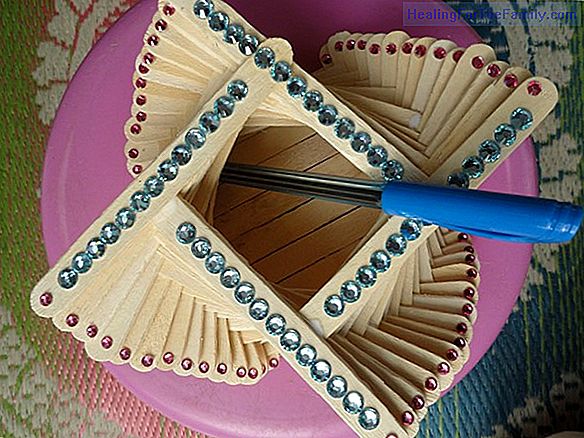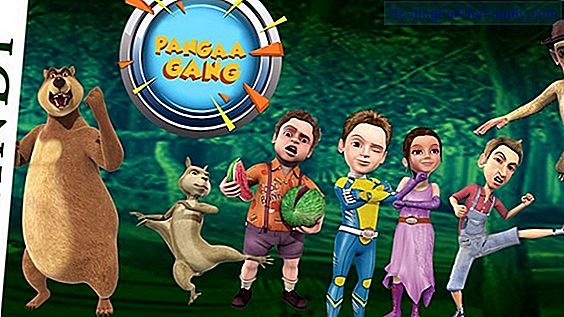What kind of intelligence does your child have?
There are no intelligent children and others who are not. In fact, when our children are young and we see them operating the cell phone or the computer, we believe they are the most intelligent in the universe. Then we learned that the children of the neighbors do more or less the same, and we began
There are no intelligent children and others who are not. In fact, when our children are young and we see them operating the cell phone or the computer, we believe they are the most intelligent in the universe.
Then we learned that the children of the neighbors do more or less the same, and we began to doubt a little of their capacity. And if, upon arriving at school, the teacher tells us that she has difficulties in reading or math, our souls are on the floor. The reality is that all children are intelligent, what happens is that there are multiple intelligences but the western world tends to value only the one that has to do with cognitive aspects, which in fact is what the famous CI measures: Intellectual Quotient .
Multiple Intelligences in childhood

Dr. Ariel Gold and Lic. Alicia Gómez in their recently published book "Psicoeducar 2" (Planet) explain that the traditional concept of intelligence is too limited and that it is good to detect the one that has each boy to encourage and stimulate her, both from home and from school. This is a brief description of each of those cited by the authors.
1. Logical-mathematical intelligence: This type of intelligence is that possessed by people who have great ability to solve problems using deductive and inductive reasoning. In children it manifests through skill for strategy games such as checkers and chess, the construction of puzzles and questions about how things work. These children learn fast to add and subtract and have no problem learning math.
2. Linguistic intelligence: People who have linguistic intelligence have a great capacity to communicate using the word. They can understand when they read, interpret and synthesize nimbly. It is likely that great teachers, writers, work in the media. As children, they manifest this intelligence by reading stories, speaking or writing better than other children of their age, playing word games such as crossword puzzles, boggle, etc.
3. Naturalistic intelligence and scientific thinking: Children with this intelligence love to play with plants and animals, classify them, investigate. They like to do experiments, compare and classify objects and they are very curious. As adults, this intelligence is possessed by biologists and physicians, for example, who love to understand the natural world. You have to encourage them to discover on their own and encourage contact with nature.
4. Visuospatial intelligence: It is the intelligence possessed by those who can move easily in the environment. It deals with the ability to use symbolic systems, spatial reasoning, visual recognition, projection, ease of use of maps and diagrams. Children with this type of intelligence are imaginative, enjoy artistic activities, prefer everything that has to do with the visual. They are good at treasure hunts, building on the sand for example.
5. Kinesthetic body intelligence: The great athletes among them many soccer players possess this intelligence since they involve their whole body for their actions. They use and unite mind and body for perfect physical execution. Children with this type of intelligence tend to excel in sports, have good motor coordination, like manual activities and arm and disarm things. Girls can dance for hours in front of the mirror. They may seem restless because they have a hard time sitting in one place for many hours.
6. Musical intelligence: Refers to the ability to appreciate and express musical forms, as well as being sensitive to rhythm and tones. The boys with this kind of intelligence usually play some musical instrument, they hum themselves, they beat the objects rhythmically. They can also dance to the music.
7. Social intelligence: This intelligence refers to the ability to relate to others. It is divided into two types: Intrapersonal intelligence, which is the ability to have knowledge about oneself and the interpersonal that has to do with the relationship with others. Intra-personal ability manifests itself in children in the ability to express their emotions and learn from their successes and failures for example. While those who have interpersonal intelligence are very empathetic, mediate in conflicts between other children, they are usually group leaders. They are those guys who are called sociable, who have no problem staying with strangers, playing with other children they did not know, etc.
All children have some kind of intelligence and if they grow convinced of it, tomorrow they will have the possibility of finding a work path based on their abilities that makes them happy. Parents should observe and detect that of our children and encourage them to use it, because knowing they are good at something strengthens their self-esteem. Unfortunately in schools there is a tendency to give much more importance to one type of intelligence than to others, therefore we are the parents who should support the children and strengthen them in those talents with which they were blessed. And above all, explain that nobody is good at EVERYTHING, but nobody is good at NOTHING either.
Source: Gold, Ariel and Gómez Alicia. Psychoeducar 2. Some keys to understand how our students learn. Montevideo, Ed. Planeta, October 2016.












